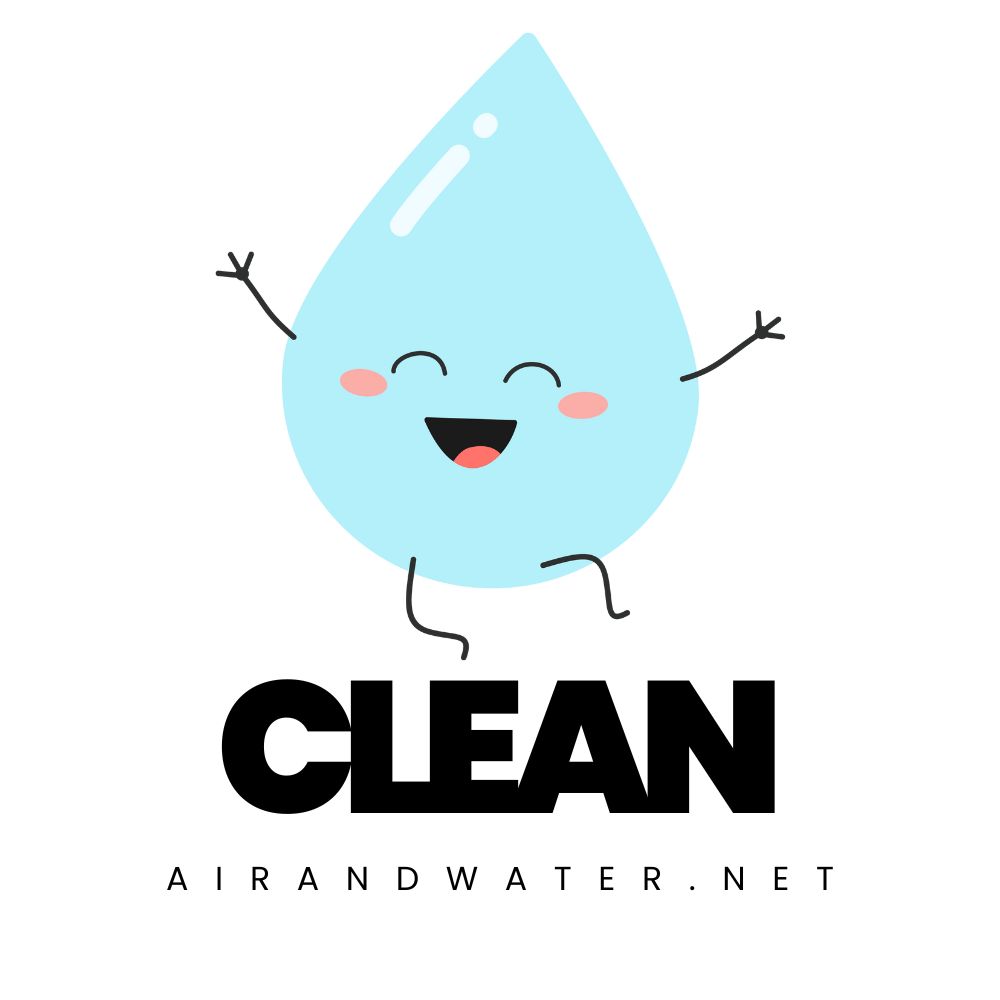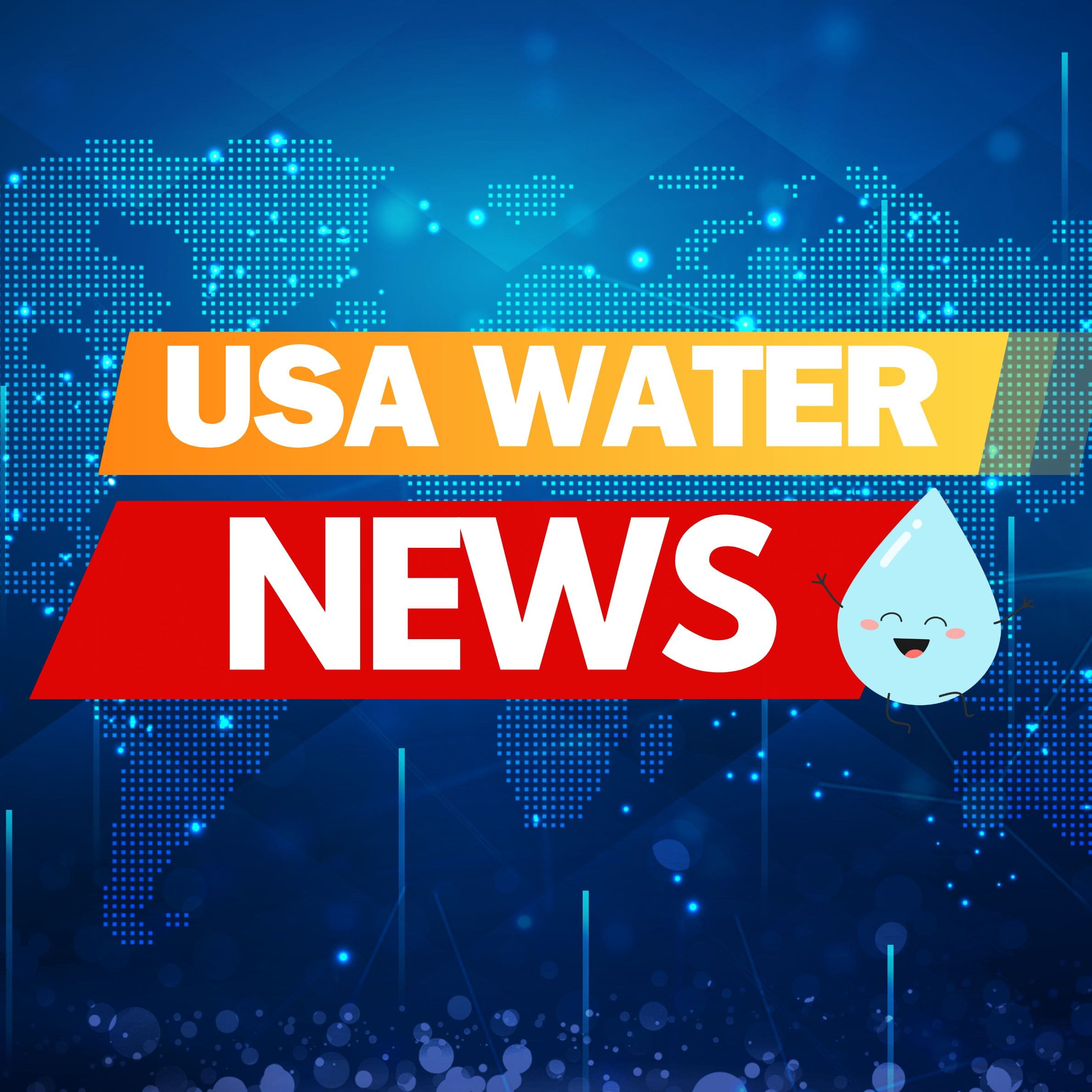Baton Rouge Water Quality at a Glance
minor concerns
Is Baton Rouge Water Safe to Drink?
Yes, Generally Safe – Baton Rouge Water Company received an “A” grade from Louisiana Department of Health for the second consecutive year. The water meets all federal standards, though minor concerns include naturally occurring arsenic, iron/manganese levels, and disinfection byproducts. The water is naturally filtered through deep aquifer systems.
⚠️ Key Concerns for Baton Rouge Residents
- Arsenic: Naturally occurring levels detected, though within federal limits; EWG reports levels 38x their stricter guidelines
- Iron/Manganese: Natural minerals causing occasional water discoloration; points deducted from state grade for levels above standards
- Disinfection Byproducts: Chloroform and trihalomethanes from water treatment process
- PFAS “Forever Chemicals”: Detected in Louisiana river systems, though Baton Rouge levels appear below federal limits
Read the full report below for detailed analysis, local data, and actionable recommendations for Baton Rouge residents.
Baton Rouge – Louisiana – Water Quality Report 2025: PFAS Testing, Infrastructure Concerns & Safety across your city
Baton Rouge Water Company manages a comprehensive municipal water system serving over 550,000 residents across East Baton Rouge Parish and parts of Ascension Parish. Established in 1888, the system has expanded to include approximately 1,550 miles of water mains, multiple pumping stations, and 94 active wells, delivering roughly 45-75 million gallons daily depending on seasonal demand to the greater Baton Rouge metropolitan area.
Baton Rouge draws its drinking water from a unique source: the Southern Hills Aquifer System, a deep groundwater resource that supplies exceptional quality water with minimal treatment requirements. This multi-layered aquifer system with wells ranging from 600-2,800 feet deep provides naturally filtered water protected from surface contamination. Baton Rouge’s water has consistently earned an “A” grade from the Louisiana Department of Health for two consecutive years, though the system faces challenges with aging infrastructure in some areas and salt water intrusion concerns requiring active management.
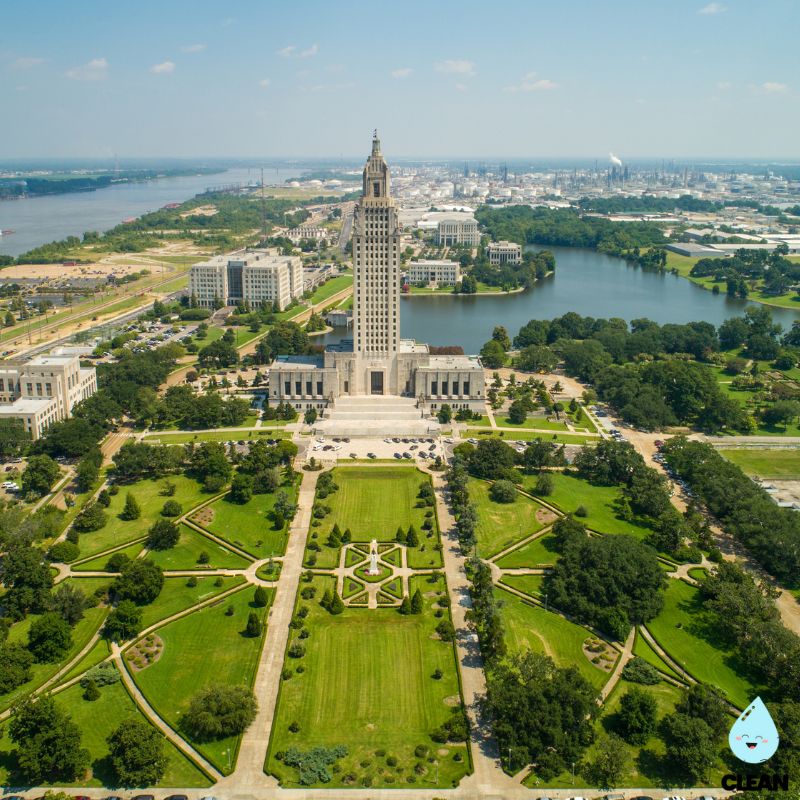
Baton Rouge Water Quality: Current Status (2024-2025)
Latest Testing Results
- Lead Levels: The most recent testing period (January-December 2023) showed 90th percentile lead levels of 1.8 parts per billion (ppb), significantly below the EPA action level of 15 ppb, reflecting the groundwater source and minimal lead service lines in the system.
- Testing Scope: Baton Rouge conducts extensive water quality testing annually throughout the system, with enhanced monitoring for salt water intrusion and specific contaminants including naturally occurring arsenic and iron levels.
- Compliance Status: Baton Rouge’s water meets all federal and state drinking water standards, maintaining full compliance with EPA and Louisiana Department of Environmental Quality regulations, earning an “A” grade from LDH for 2024-2025.
Southern Hills Aquifer System
- Primary Source: 100% of Baton Rouge’s public water supply comes from the Southern Hills Aquifer System, a vast, deep groundwater system that provides naturally filtered water with consistent quality and requires minimal treatment.
- Multiple Aquifer Zones: Water is drawn from 10 distinct sand layers at various depths (600-2,800 feet) across 94 active wells to optimize quality and prevent localized depletion of the resource.
- Salt Water Management: Comprehensive monitoring network tracks water levels, quality parameters, and salt water intrusion across the Baton Rouge Fault, with protective measures including scavenger wells and managed pumping schedules.
Minimal Treatment Technology
- Natural Purity: The exceptional quality of the aquifer source means minimal treatment is necessary; primary processes include chlorination at 1.4 parts per million, aeration for sulfur removal, and pH adjustment.
- Chlorine Disinfection: Low-level chlorination provides effective pathogen control while maintaining excellent taste and odor characteristics, with natural sulfur smell removed during treatment.
- Iron Management: Selected well facilities include treatment systems to address naturally occurring iron and manganese in certain aquifer zones, preventing discoloration and improving aesthetic quality.
Infrastructure and Conservation
- Pipeline Maintenance: Ongoing replacement of aging water mains in the 1,550-mile distribution system, prioritizing areas with high leak rates and oldest infrastructure to maintain system reliability.
- Aquifer Protection: Strategic well field management, scavenger well technology to intercept salt water movement, and collaboration with the Capital Area Ground Water Conservation Commission to ensure long-term sustainability.
- Emergency Preparedness: Advanced monitoring systems, emergency generators at critical well sites, and 24/7 supervisory control room ensure continuous water supply during storms and emergencies.
Customer Protection Initiatives
Baton Rouge Water Company provides extensive customer support including free water quality testing, conservation programs, and payment assistance for qualified residents. The utility’s Water Quality Assurance Program offers regular monitoring throughout the distribution system, while educational outreach helps residents understand water conservation and quality protection. The company’s commitment to environmental stewardship includes infrastructure investments and transparent communication about water quality and system maintenance, ensuring reliable delivery of this naturally pure aquifer water to the greater Baton Rouge metropolitan area.
Recommendations for Baton Rouge Residents
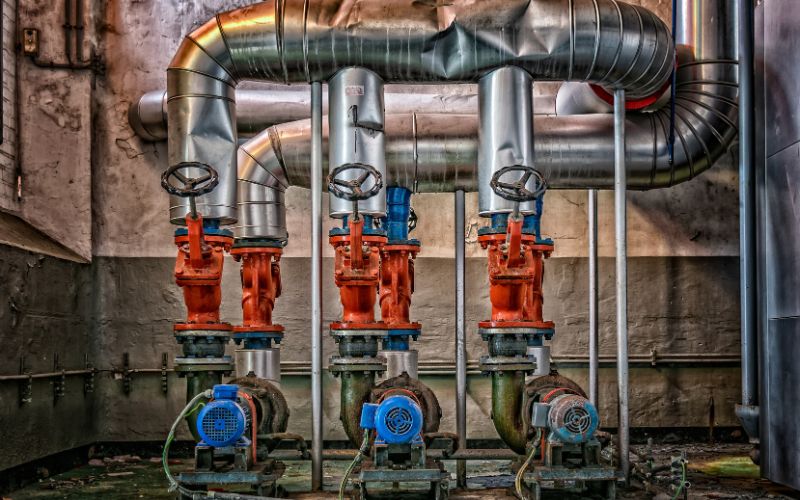
Test Your Water
Request free water quality testing by calling the Water Quality Hotline at (225) 389-5100 or visiting brwater.com. While Baton Rouge’s aquifer water is naturally high quality and meets all federal standards, testing is recommended for homes with older plumbing systems or if you notice taste or appearance changes.

Conserve Water
Participate in water conservation efforts to protect the Southern Hills Aquifer from overuse and salt water intrusion. Call (225) 389-3090 or visit brwater.com for information about conservation programs, efficient fixtures, and landscaping techniques appropriate for Louisiana’s climate.
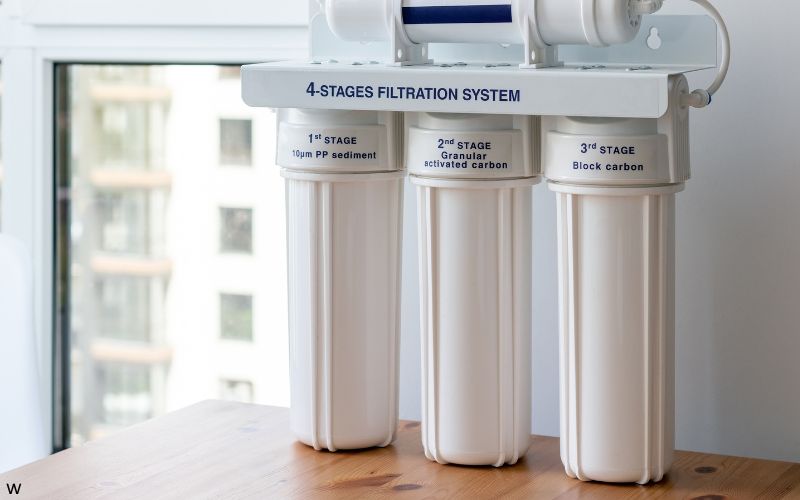
Consider Home Filtration
While Baton Rouge’s water is high quality, households may benefit from NSF-certified filters for aesthetic preferences, including taste enhancement or addressing occasional iron discoloration. Reverse osmosis systems can address trace arsenic if desired.
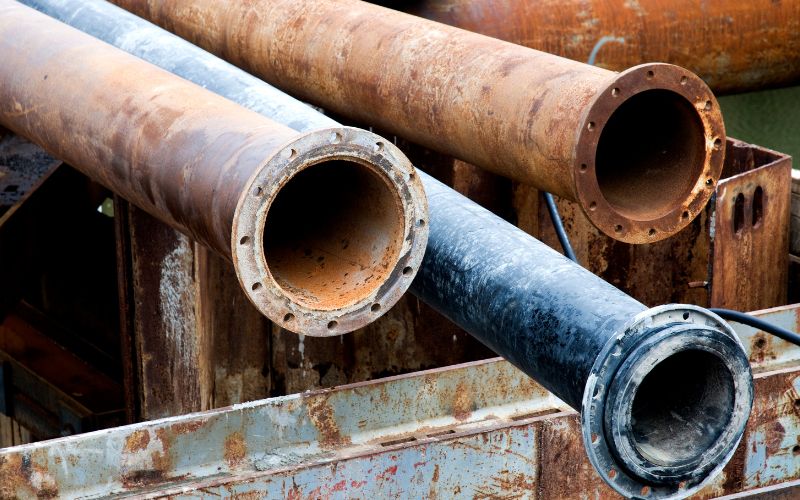
Update Old Plumbing
If your home was built before 1986, consider updating plumbing fixtures to reduce potential lead exposure from older pipes and fixtures. The city offers consultation services to help homeowners identify potential issues and ensure optimal water quality.
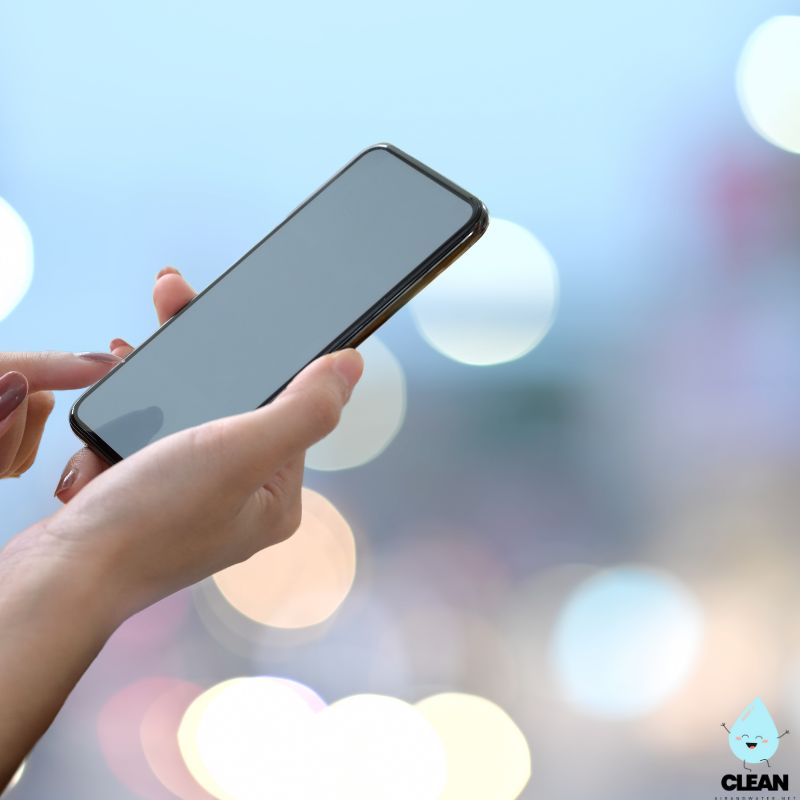
Report Issues
Contact the Water Quality Hotline at (225) 389-5100 immediately for water pressure problems, discoloration, or quality concerns. For emergencies after hours, call the 24-hour emergency line at (225) 389-2070 for prompt assistance.
Quality News About Your Water
Get the comprehensive water quality news coverage you need with our dedicated US Water News Service. From coast to coast, we deliver in-depth reporting and expert analysis on PFAS contamination, EPA regulatory changes, infrastructure developments, and emerging water safety issues affecting communities nationwide. While mainstream media only covers the biggest stories, we provide the detailed, ongoing coverage that helps you understand the full scope of America’s water challenges. Whether you’re a concerned citizen, water professional, or community leader, our daily updates and analytical insights keep you informed about the issues that matter most to public health and environmental safety.
Frequently Asked Questions
Is Baton Rouge’s tap water safe to drink?
Yes, Baton Rouge’s tap water is exceptionally safe to drink. The city’s water comes from the protected Southern Hills Aquifer System, providing naturally filtered water that requires minimal treatment. This deep groundwater source is largely protected from surface contamination and has earned an “A” grade from the Louisiana Department of Health.
Recent testing shows 90th percentile lead levels at only 1.8 ppb, well below EPA action levels of 15 ppb. The water consistently meets or exceeds all federal and state drinking water standards. Unlike many cities with surface water sources, Baton Rouge’s aquifer water contains minimal disinfection byproducts and provides naturally soft, pure water.
Why does my water sometimes appear reddish or brown?
Occasional reddish or brown discoloration in Baton Rouge water is typically due to iron and manganese sediment, which naturally occurs in the aquifer system. This is not a health concern but rather an aesthetic issue that may occur:
1. After water main repairs or hydrant flushing that disturbs sediment in pipes
2. In older neighborhoods with aging cast iron pipes
3. In homes located near wells with higher natural iron content
If you experience discoloration, run cold water for 2-3 minutes to clear the lines. If discoloration persists for more than an hour, contact the Water Quality Hotline at (225) 389-5100. The water utility continuously monitors mineral levels and has treatment systems at specific wells to minimize this issue.
What is salt water intrusion and how does it affect our water?
Salt water intrusion is a process where salt water from deeper formations moves into the freshwater aquifer. In Baton Rouge:
• Natural Fault Line: The Baton Rouge Fault acts as a natural barrier between fresh and salt water, but excessive pumping can draw salt water across this barrier
• Current Status: The utility monitors salt water movement closely; no drinking water wells currently exceed sodium standards, though intrusion has been detected since the 1950s
• Mitigation Measures: Strategic well placement, managed pumping rates, and innovative “scavenger wells” that intercept advancing salt water protect the drinking water supply
• Long-term Planning: The Capital Area Ground Water Conservation Commission manages comprehensive conservation plans, including potential industrial use limitations and alternative water sources
This proactive approach has successfully managed the threat while maintaining high water quality for over 70 years.
Are there water restrictions in Baton Rouge?
Baton Rouge typically does not implement mandatory water restrictions but maintains conservation guidelines to protect the aquifer:
Year-Round Conservation Recommendations:
• Water lawns before 10am or after 6pm to reduce evaporation
• Limit irrigation to 2-3 days per week
• Install water-efficient fixtures and appliances
• Check for and repair leaks promptly
Aquifer Management:
While water quantity is abundant, conservation helps manage aquifer pressure and minimize salt water intrusion. During summer heat waves when demand peaks at 75 million gallons daily, voluntary conservation measures may be requested to manage system pressure.
Current conservation status and recommendations are available at brwater.com or by calling (225) 389-3090.
Contaminants of Concern
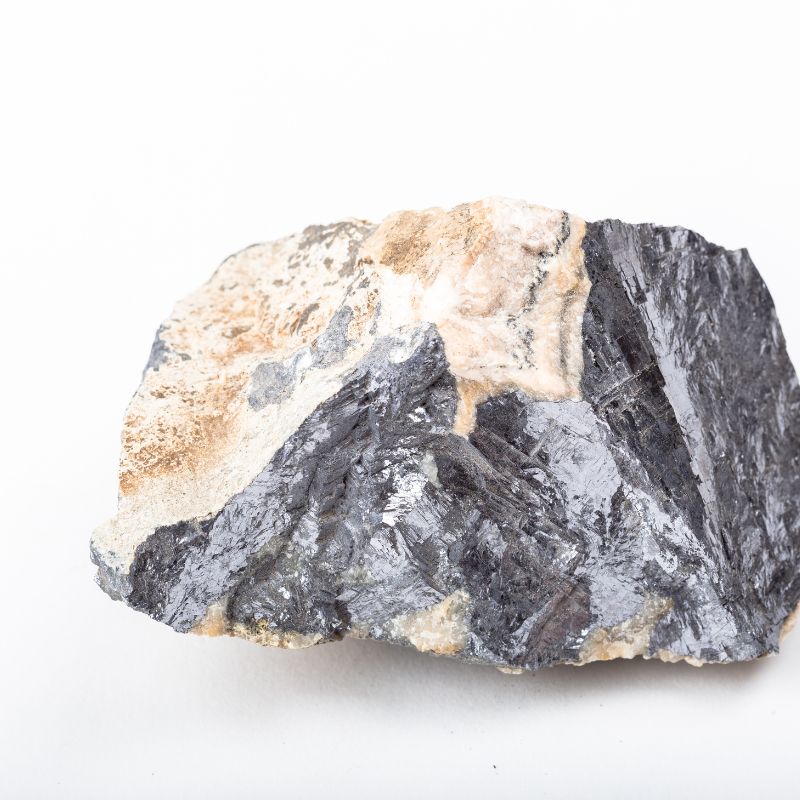
Iron & Manganese
Source: Naturally occurring minerals in certain aquifer zones; more prevalent in specific geographic areas within the Baton Rouge water system, particularly deeper well sources
Health Effects: Iron and manganese are not health concerns at detected levels but cause aesthetic issues including water discoloration, metallic taste, and potential staining of fixtures and laundry
Current Levels: System average of 0.2 mg/L iron, with seasonal variations; manganese levels resulted in point deductions from state grade EPA Limits: Secondary standards (aesthetic) of 0.3 mg/L iron, 0.05 mg/L manganese

Salt Water Intrusion
Source: Natural movement of salt water across the Baton Rouge Fault into freshwater aquifer zones, accelerated by groundwater pumping since the 1940s
Health Effects: Increased sodium content can affect taste and pose concerns for residents on sodium-restricted diets; no current health risks at current levels
Current Status: All drinking water wells maintain safe sodium levels; scavenger well technology and comprehensive monitoring successfully manage threat; ongoing collaboration with regional conservation commission ensures long-term protection
Please read – our information
The information presented on cleanairandwater.net is compiled from official water quality reports, trusted news sources, government websites, and public health resources. While we strive for accuracy and thoroughness in our presentations, we are not scientists, engineers, or qualified water quality professionals.
Our mission is to present water quality information in an accessible, real-world format that helps people understand what’s in their water and make informed decisions about their health and safety. We believe that complex environmental information should be available to everyone in a format that’s easy to understand.
We make every effort to ensure our content is current and accurate, but we cannot guarantee that all information is complete or error-free. This website should not replace official communications from your local water utility or health department. We always recommend consulting official sources for the most up-to-date information regarding your specific water system.
Clean Air and Water is not liable for any unintentional errors, omissions, or outdated information. The content on this site is provided for informational purposes only and should not be considered professional advice.
